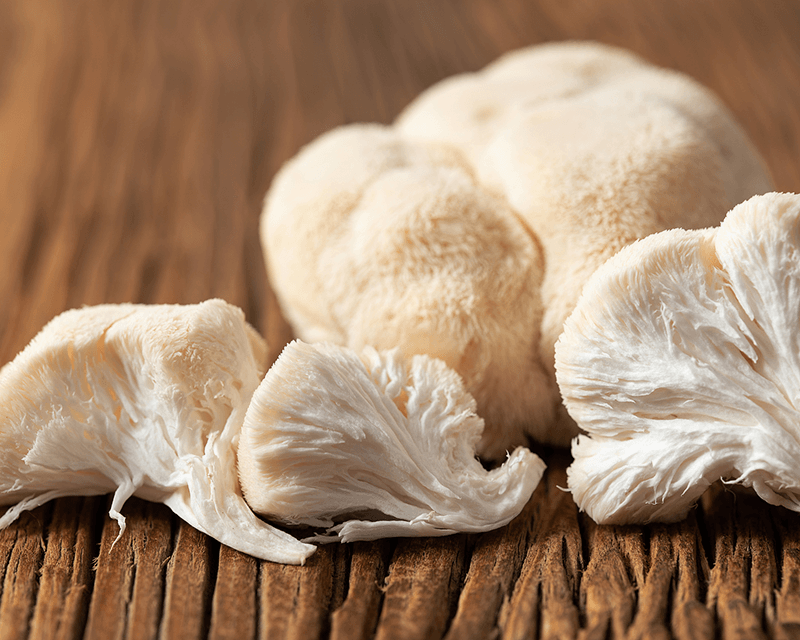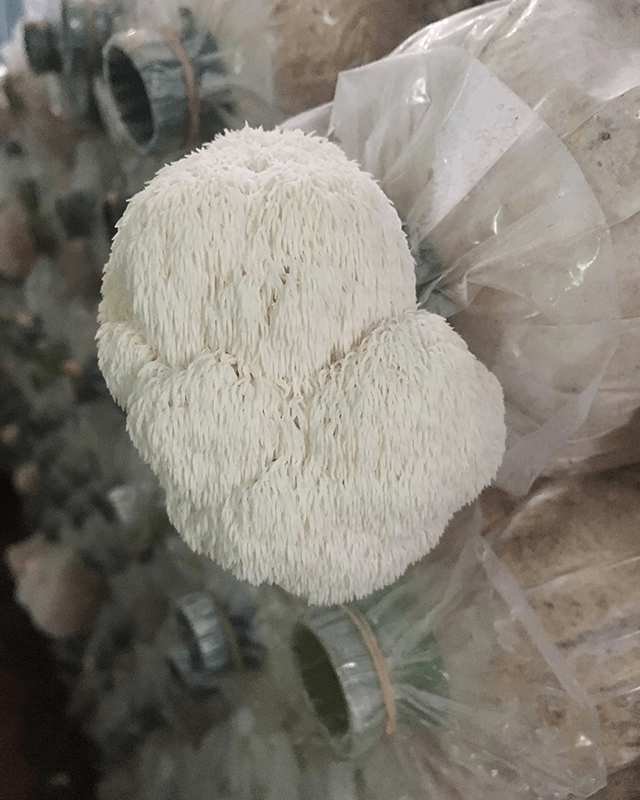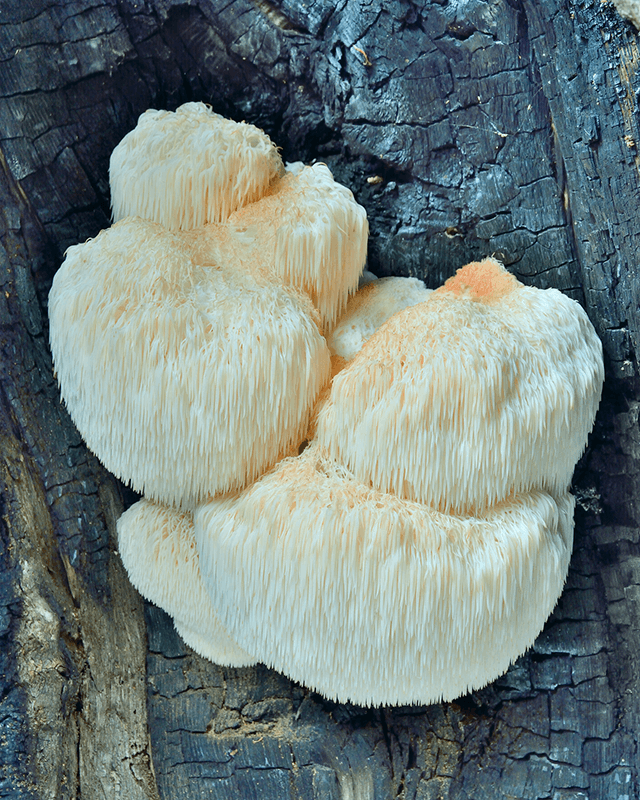Introduction:
In recent years, the world has seen a growing trend towards natural and holistic approaches to health and wellness. Traditional remedies and alternative medicine practices have gained popularity, as people seek alternatives to conventional treatments. One such remedy that has gained significant attention is Lion's Mane mushrooms. This unique mushroom species is not only recognized for its culinary uses but also for its potential health benefits. In this blog post, we will explore what Lion's Mane mushrooms are, their history, nutritional profile, potential health benefits, and culinary uses.
History and Origin:
Lion's Mane mushrooms is an edible mushroom belonging to the tooth fungus group. It is scientifically known as Hericium erinaceus, also called lion's mane mushroom, mountain-priest mushroom, bearded tooth fungus, and bearded hedgehog, hou tou gu, or yamabushitake, has both culinary and medicinal uses in Asian countries like China, India, Japan, and Korea.
In China, Lion's Mane mushrooms, also known as "Monkey Head mushrooms," have been documented as early as the Tang Dynasty (618-907 AD). They were highly valued for their ability to support cognitive function and promote overall well-being.
Appearance and Characteristics:
Lion's Mane mushrooms are easily recognizable due to their unique appearance. They have a white, globe-shaped, or brain-like structure, resembling a lion's mane or a white coral. The mushroom grows in long, hanging spines, which further enhance its resemblance to the mane of a lion. The spines gradually turn from white to a light brown color as the mushroom matures.
Nutritional Profile:
Lion's Mane mushrooms are not only prized for their flavor but also for their nutritional composition. They are rich in essential vitamins, minerals, and bioactive compounds. Here is an overview of the key nutrients found in Lion's Mane mushrooms:
Polysaccharides: Lion's Mane mushrooms are known for their high content of beta-glucans, a polysaccharide type linked to various health benefits, including immune support and anti-inflammatory effects.
Proteins and Amino Acids: Lion's Mane mushrooms are a good source of protein, containing all essential amino acids. They also provide a range of non-essential amino acids that are vital for various physiological processes.
Antioxidants: Lion's Mane mushrooms contain antioxidants, including phenols and terpenoids. These compounds help protect the body against oxidative stress, reducing the risk of chronic diseases associated with inflammation and free radicals.
Potential Health Benefits:
Lion's Mane mushrooms have gained attention for their potential health benefits. While scientific research is still ongoing, here are some potential benefits associated with Lion's Mane mushrooms:
(1) Cognitive Function and Brain Health: Lion's Mane mushrooms have been traditionally used to support cognitive function and brain health. Some studies suggest that they may enhance memory, focus, and overall mental well-being. They are believed to promote the production of nerve growth factors, which may support the growth and protection of brain cells.
(2) Nervous System Support: Lion's Mane mushrooms have been studied for their potential neuroprotective properties. They may help promote nerve regeneration and improve symptoms in neurodegenerative conditions like Alzheimer's and Parkinson's diseases. These mushrooms are thought to stimulate the production of certain compounds that support nerve cell growth and prevent nerve damage.
(3) Immune System Support: Lion's Mane mushrooms contain compounds like beta-glucans that can stimulate the immune system. They may help enhance the activity of immune cells and improve overall immune function. By boosting immune response, Lion's Mane mushrooms may assist in fighting off infections and diseases.
(4) Digestive Health: Traditional medicine has used Lion's Mane mushrooms to soothe digestive conditions such as stomach ulcers and gastritis. They may help with inflammation in the digestive tract and support a healthy gut. Lion's Mane mushrooms have been studied for their potential to enhance the growth of beneficial gut bacteria and improve overall digestive function.
(5) Antioxidant and Anti-inflammatory Effects: Lion's Mane mushrooms contain antioxidants and anti-inflammatory compounds. These properties may help reduce oxidative stress and inflammation in the body. By fighting off free radicals and reducing inflammation, Lion's Mane mushrooms potentially have a role in preventing chronic diseases.
It's essential to note that while Lion's Mane mushrooms show promise, further scientific research is needed to fully understand their effects on human health. As always, it's best to consult with a healthcare professional before making any significant changes to your diet or incorporating any new supplements.
Culinary Uses:
Apart from their potential health benefits, Lion's Mane mushrooms are known for their unique texture and flavor. They have a tender, meaty texture and a mild, slightly sweet taste. Their versatility in the kitchen allows them to be used in various dishes. Some popular culinary uses of Lion's Mane mushrooms include:
Stir-fries: Lion's Mane mushrooms can be sliced and stir-fried with vegetables and spices for a flavorful and nutritious meal.
Soups and stews: The meaty texture of Lion's Mane mushrooms makes them a great addition to soups and stews, adding depth and flavor to the dish.
Meat substitutes: Due to their texture, Lion's Mane mushrooms can be used as a vegetarian or vegan alternative in recipes that call for meat, such as burgers or sandwiches.
Roasted or grilled: Lion's Mane mushrooms can be marinated and grilled or roasted to bring out their natural flavors and create a delicious side dish.
Conclusion:
Lion's Mane mushrooms are a fascinating species that have made their way into traditional medicine and culinary practices. While more research is needed to fully understand their potential health benefits, they offer a unique blend of flavor, texture, and nutritional benefits. Whether you're looking to experiment in the kitchen or explore natural remedies, Lion's Mane mushrooms are definitely worth considering. So, do not hesitate to add this majestic mushroom to your diet and experience its potential benefits firsthand.
Lion's Mane Mushroom Extract Powder
If you are interested in transitioning from Lion's Mane mushrooms to Lion's Mane mushroom extract powder, it is important to note that the extract powder is a more concentrated form of the mushroom. This means that it may provide a more potent dose of the beneficial compounds found in Lion's Mane mushrooms.
When it comes to purchasing Lion's Mane mushroom extract powder, I would like to recommend BIOWAY ORGANIC as a supplier. They have been in operation since 2009 and specialize in providing organic and high-quality mushroom products. They prioritize sourcing their mushrooms from reputable organic farms and ensure that their products undergo strict quality control measures.
BIOWAY ORGANIC's Lion's Mane mushroom extract powder is derived from organic and sustainably cultivated mushrooms. The extraction process they use helps to concentrate the beneficial bioactive compounds found in Lion's Mane mushrooms, making it easier to incorporate into your daily routine.
Please note that it's always important to do your own research and read customer reviews before making a purchase. It's also advisable to consult with a healthcare professional or a qualified herbalist to determine the appropriate dosage and any potential interactions or side effects specific to your health condition or medications.
Disclaimer: The information provided here is for informational purposes only and should not be taken as medical advice. Always consult with a healthcare professional before starting any new supplements or making changes to your diet.
Contact Us:
Grace HU (Marketing Manager): grace@biowaycn.com
Carl Cheng ( CEO/Boss ): ceo@biowaycn.com
Website: www.biowaynutrition.com
Post time: Nov-09-2023









